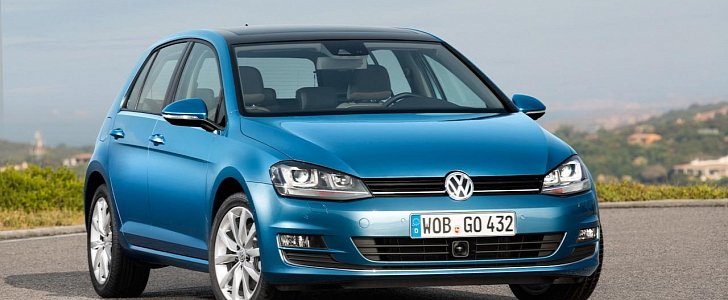This week, Volkswagen has released a report saying that it has discovered the CO2 emissions on 800,000 cars have been declared too low.
The company has not revealed which engines are affected, but people quickly learned the details. Internal documents suggest the 1.4, 1.6 and 2.0 TDI, joined by the 1.4 TSI with cylinder deactivation, are to blame.
Since these VW, Audis and Skodas are not broken and there’s no law that says CO2 levels must be at a certain level for a particular size of engine, Volkswagen will have to come clean and say “well, these are the real CO2 emissions.”
Across most of Europe, taxes are paid accordingly, so rather than face the wrath of the European Union’s lawyers, the German automaker announced it would pay the tax difference.
According to Automotive News, VW has already issued a statement to the European Union finance ministers, saying its customers are not to be asked for a single cent. Instead, the company will support the full bill.
There' still no list of affected models or even one of engines that are under investigation. However, on Friday, we read a short statement from Volkswagen Japan saying there could indeed be a CO2 problem with the 1.4 TSI. Owners are told their engines are reliable and safe, so they shouldn’t worry. However, as far as we can recall, the 1.4 turbo is almost the only engine offered on Passat, Golf and other models of this size in Japan.
Volkswagen Group is so far taking the brunt of a major emissions scandal. Besides the problems its normal brands have with four-cylinder diesel engines, the EPA has found that 3-liter TDI six-cylinder engines also emit many times more NOx gasses than they are supposed to. This discovery has plunged Porsche knee-deep into the scandal.
This latest problem regarding the CO2 levels of 800,000 cars will cost the company €2 billion ($2.2 billion), according to internal estimates. Also, around 11 million diesel engines will require costly fixes.
Beyond that, the reputation of the entire German auto industry could be damaged, as admitted even by the chairman of Daimler.
Since these VW, Audis and Skodas are not broken and there’s no law that says CO2 levels must be at a certain level for a particular size of engine, Volkswagen will have to come clean and say “well, these are the real CO2 emissions.”
Across most of Europe, taxes are paid accordingly, so rather than face the wrath of the European Union’s lawyers, the German automaker announced it would pay the tax difference.
According to Automotive News, VW has already issued a statement to the European Union finance ministers, saying its customers are not to be asked for a single cent. Instead, the company will support the full bill.
There' still no list of affected models or even one of engines that are under investigation. However, on Friday, we read a short statement from Volkswagen Japan saying there could indeed be a CO2 problem with the 1.4 TSI. Owners are told their engines are reliable and safe, so they shouldn’t worry. However, as far as we can recall, the 1.4 turbo is almost the only engine offered on Passat, Golf and other models of this size in Japan.
Volkswagen Group is so far taking the brunt of a major emissions scandal. Besides the problems its normal brands have with four-cylinder diesel engines, the EPA has found that 3-liter TDI six-cylinder engines also emit many times more NOx gasses than they are supposed to. This discovery has plunged Porsche knee-deep into the scandal.
This latest problem regarding the CO2 levels of 800,000 cars will cost the company €2 billion ($2.2 billion), according to internal estimates. Also, around 11 million diesel engines will require costly fixes.
Beyond that, the reputation of the entire German auto industry could be damaged, as admitted even by the chairman of Daimler.

